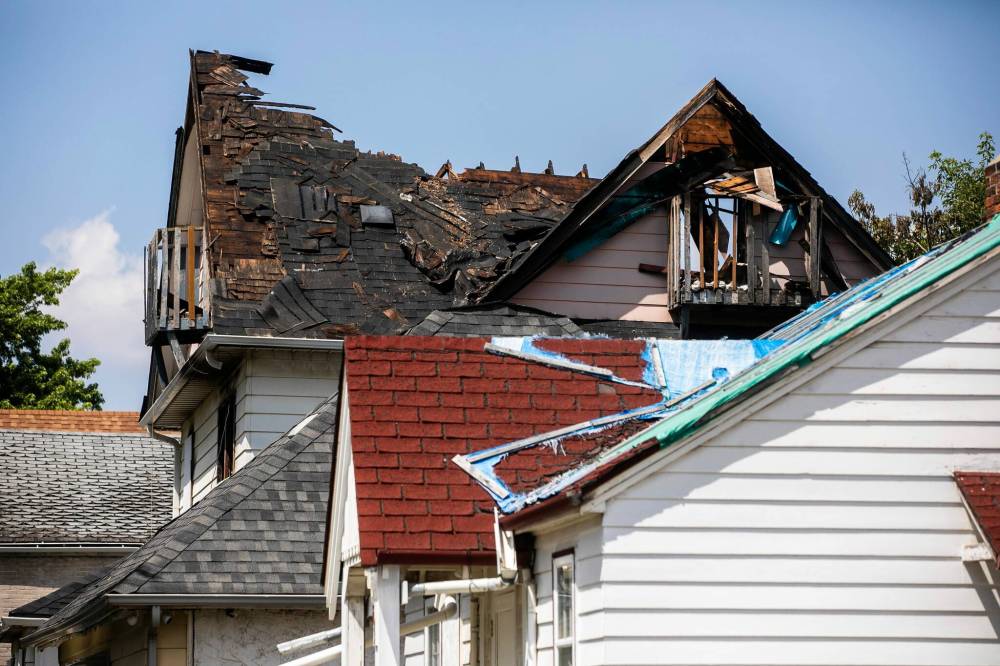Top Stories
Winnipeg Fire Service Faces $7.47 Million Overtime Crisis

URGENT UPDATE: Winnipeg’s fire service is in a financial crisis, with projections indicating an alarming $7.47 million budget overrun for 2025 due to skyrocketing overtime costs. This revelation comes from a recent administrative report presented to the city’s standing policy committee on finance and economic development, confirming frontline firefighters’ long-standing warnings about the unsustainable reliance on overtime.
The report highlights that $6.9 million of this deficit is attributed to overtime expenses, while $6 million accounts for costs related to the Workers Compensation Board (WCB). The situation is dire and reflects a chronic issue of underfunding that has persisted for years.
Firefighters say this is not merely a temporary blip; it’s a critical trend exacerbated by a lack of adequate staffing. Since 2016, WCB costs have surged by 314%, and fire overtime has increased by 385%. In 2025, fire overtime is projected to reach nearly $9.7 million. The cumulative costs since 2018 exceed $56 million, equivalent to funding over 560 full-time firefighter-years.
Nick Kasper, president of the United Fire Fighters of Winnipeg (IAFF Local 867), emphasizes that the city’s decision to address staffing shortages through overtime rather than hiring has created a “vicious cycle” of exhaustion, injuries, and escalating costs. “Every overtime hour represents another firefighter too exhausted to work, another crew stretched thin, another injury waiting to happen,” he warned.
In recent years, Winnipeg has witnessed a staggering 245% increase in vacant property fires, coupled with an 87% rise in structure fires and a 23% increase in medical calls. The Winnipeg Fire Paramedic Service (WFPS) responds to three times the 911 call volume per capita compared to similar Canadian cities, yet the number of firefighters on duty remains lower than it was 50 years ago.
The deficiencies in staffing have led to a significant drop in apparatus availability and longer response times for emergencies. As the population grows, the city’s budget continues to lean on outdated projections from 2020, which underestimated the current demand for fire services.
The city’s reliance on overtime to manage staffing shortages has left its financial reserves dangerously low. With the financial stabilization reserve already underfunded, the city is essentially borrowing to cover costs created by its own staffing issues. This financial tactic has been labeled “fiscal circular logic” by critics, as it only defers the problem without addressing the underlying staffing needs.
Authorities are now under pressure to prioritize funding for frontline firefighters rather than continuing with temporary fixes. The report indicates that the city is working with WCB to investigate the causes behind increased time loss, but many believe the answer is clear: chronic overwork and inadequate staffing are leading to burnout and injury among firefighters.
As the situation develops, city officials must make a crucial decision: invest in the necessary staffing to ensure public safety or continue to pour millions into a broken system that endangers both firefighters and the community they serve.
With calls for action growing louder, the question remains—will Winnipeg city council have the courage to address this critical situation before it escalates further?
-

 Politics1 week ago
Politics1 week agoSecwepemc First Nation Seeks Aboriginal Title Over Kamloops Area
-

 World4 months ago
World4 months agoScientists Unearth Ancient Antarctic Ice to Unlock Climate Secrets
-

 Entertainment4 months ago
Entertainment4 months agoTrump and McCormick to Announce $70 Billion Energy Investments
-

 Lifestyle4 months ago
Lifestyle4 months agoTransLink Launches Food Truck Program to Boost Revenue in Vancouver
-

 Science4 months ago
Science4 months agoFour Astronauts Return to Earth After International Space Station Mission
-

 Technology3 months ago
Technology3 months agoApple Notes Enhances Functionality with Markdown Support in macOS 26
-

 Top Stories1 month ago
Top Stories1 month agoUrgent Update: Fatal Crash on Highway 99 Claims Life of Pitt Meadows Man
-

 Sports4 months ago
Sports4 months agoSearch Underway for Missing Hunter Amid Hokkaido Bear Emergency
-

 Politics3 months ago
Politics3 months agoUkrainian Tennis Star Elina Svitolina Faces Death Threats Online
-

 Politics4 months ago
Politics4 months agoCarney Engages First Nations Leaders at Development Law Summit
-

 Technology4 months ago
Technology4 months agoFrosthaven Launches Early Access on July 31, 2025
-

 Top Stories3 weeks ago
Top Stories3 weeks agoFamily Remembers Beverley Rowbotham 25 Years After Murder




















